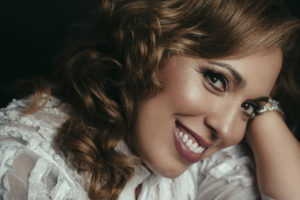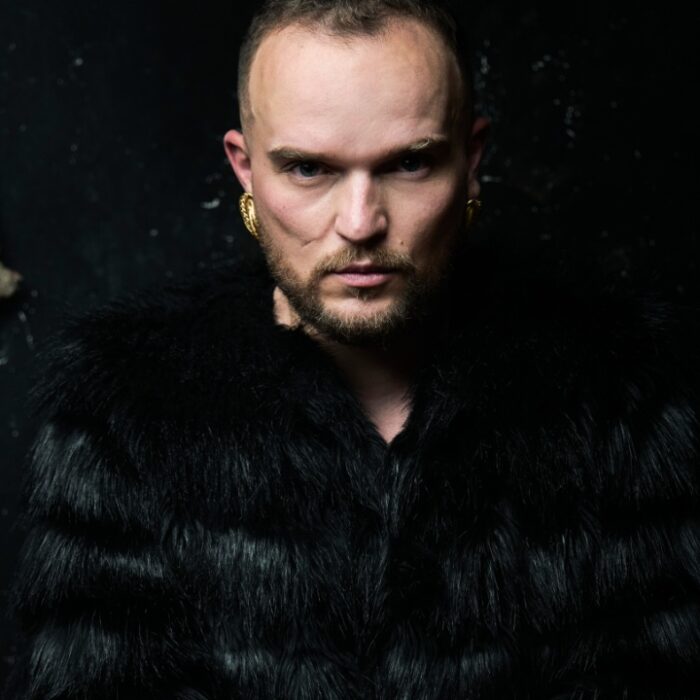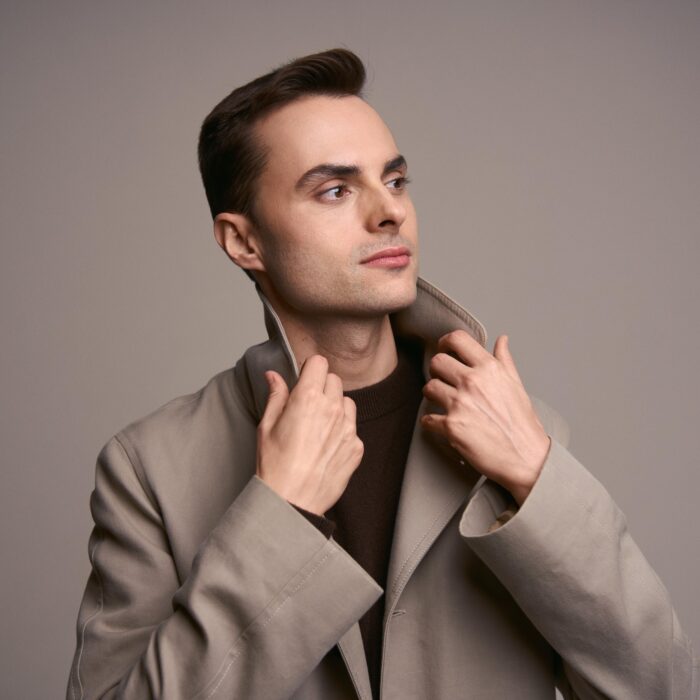
Q&A: María José Siri On ‘Madama Butterfly,’ Verismo & Verdi
By Francisco SalazarOver the past year, María José Siri’s career has skyrocketed from opening the Teatro alla Scala in a new production of “Madama Butterfly” to premiering a new production of “Manon Lescaut” at the Teatro Regio di Torino. This past month she was also called to make another high-profile opening at the Vienna State Opera in “Il Trovatore.”
Since then she has been in demand around the world from the Arena di Verona to the Macerata Opera Festival to Valencia, Vienna, Munich, Milan, Berlin and Barcelona among other cities. Her Verdi and Puccini are among the most sought and her work as an actress has been phrased by critics around.
OperaWire spoke to Siri about her upcoming season and the challenges of performing the dramatic repertoire.
OperaWire: Why do you love singing the role of Madama Butterfly?
Maria Jose Siri: This is a role that I waited for many years and waited for the right moment to sing it. As an audience member seeing it, I would always get emotional. I always loved it, but I was always cautious. So when I did the audition for Maestro Riccardo Chailly, I was honored because he chose me to open the Teatro alla Scala season without having ever sung the role. So I said, “Okay, this is the moment,” and when I started rehearsing the music, I started to fall in love again. Singing it again in Macerata was like re-learning the work because of the director and, of course, at La Scala we did the original version which is a bit different from the current version. I love that opportunity of doing two very different Butterflies. The contrast is very different.
OW:Can you tell me about the musical/textual differences of singing the two versions of Butterfly? What was the experience of singing music no one knows?
MJS: To learn the original was like learning a new opera because I am not one who listens to a lot of opera. So I didn’t really know what a “Butterfly” was like. So it was very pleasant to study the 1904 version. Once we did all the rehearsals, it was fascinating. At La Scala, we did about 10 performances between a student performance and dress rehearsals. So it was it hard to forget certain parts and when I had to do the other version it was very hard.
OW: What is the harder version to sing or do you find them equally difficult?
MJS: I think the original is much harder because the drama is more extensive and it is also longer. What I can I tell you is that I have never seen the original. I’ve only sung it and it is a different sensation. From what I heard audiences say it’s longer and the drama is much denser. And now singing the Paris version, there are some phrases that don’t make sense to me because I sang the original. But I think the level of difficulty is the same. I have to say that having sung my first Butterfly in a theater and singing my second in open air, you have to be more conscious of other factors. So it helped me with the Paris version. If I would have had to do the original version outdoors, it would have been complicated. But I am still in love with the 1904 version.
OW: You will be doing three revivals of “Madama Butterfly.” What are you excited for?
MJS: They are all revivals and completely traditional. So there will be little rehearsal period. But after singing two productions I have adopted a language for my Butterfly and as I continue to sing it, it will evolve. As a singer, I will likely take new things and leave others that I have done before. After these three productions, I will have sung five productions which will make my interpretation more complete.
OW: This season you will also sing Elisabetta in “Don Carlo” and Amelia in “Un Ballo in Maschera.” What is it like to switch from Puccini to Verdi?
MJS: Verdi is much more straightforward and more toward the Bel Canto. Verdi is great for my voice and he corrects my technique because with Puccini you can sometimes go to extremes and it can mess with your technique. Verdi, on the other hand, has a precise line that has to be sung exactly that way. Personally, it is great to alternate between the two composers but maybe sing less Puccini. When I am planning my schedule I think about what is great for my vocal chords because I only do dramatic roles. When I am singing Puccini, I study Verdi because it helps my voice. But when I sing Verdi, I never study Puccini. Verdi is Bel Canto for me and it is all about line and registers.
OW: How do you maintain your voice singing these extremely dramatic and extreme roles?
MJS: I maintain my voice by not singing everything forte. Not everything is written forte in the soprano register. For example, Manon Lescaut is extremely dramatic. But the second act is very Leggero in the way you sing it. It should not be sung like a “Walküre.” You should lighten your voice and in my case, I rest singing it. I never sing forte throughout that act because I know that I have to sing the whole opera and not just one act. If I sing every opera forte I will not be singing for very long. So it’s about dynamics and studying the orchestral part to know where I can sing out and where I shouldn’t. I also follow what the composer says in the score and I am grateful my instrument is in great shape right now.
OW: You’ll be singing Elisabetta this season. What version will you be singing and what is your favorite moment in this opera? How do you view this very challenging and complex woman?
MJS: I did the French version when I first debuted. So now singing the four-act version is like cutting half of my character. For me, the duets with Don Carlo are the best moments that Verdi wrote. I find them so modern and so refined. In the four-act version, you miss so much character development. It’s not easy for interpreters to have to go from one version to the next because for me I will bring what the five-act version has to the four-act version. Everything that happens to Elisabetta happens in the first act. That love and that feeling for Don Carlo is in the first act. And what I love about Elisabetta are those small moments like her first aria because you can understand the character so well. This is a moment you sing piano because it’s an internal moment and also because as a queen she can’t sing forte in front of everyone. She has to contain herself but she is a woman with so much dignity.
OW: Talking about queens and royalty, you’ll be singing “Francesca Da Rimini” this season. How did that come about?
MJS: I study with Raina Kabaivanska and we were talking about roles. She was a famous Francesca herself and she proposed it to me. And I said Francesca wow, that is a challenge. So now I am studying the orchestral part and it is a completely different language for me.
OW: What do you do when you are reading a score for the first time?
MJS: I have my phases. First I study the orchestra and then I study all the singer’s parts and then I read the text and libretto while I study the music. If I have a doubt, I always go to the original source. In this case, the language is already clear and the poetry is amazing. I like to work slowly and with some pauses. Since I am singing all the time, it is important to continue to study. I really like the challenges because they motivate me. So I am really excited to do “Francesca” at La Scala with Fabio Luisi and David Pountney.
OW: What is it like to work with Fabio Luisi?
MJS: He is a great musician who respects us and not all directors know how to work with singers like him. He knows voices, repertoire and once he hears the voice, he knows how he has to direct and that is incredibly important when you’re working with singers.
OW: How do you balance acting and singing when you are learning and singing these incredibly difficult roles?
MJS: It is all connected. I cannot disassociate the singing from the acting because opera is a complete art form. Yes, we have to look at the conductor but you there is María José. There is only the character on stage. For me, it is the complete package. When you have a well-written opera, you don’t have to do much. For me, it’s all in the text and movements. Everything has to be organic.
OW: What are some of your dream roles?
MJS: I want to do more French opera. “Thaïs” is one of my favorite operas and I have to find a director that gives me the opportunity. The lighter voices are being used for these roles and I would hope they were sung by the voice it was meant for. I’ve also never sung a Liù and but I would love to sing more Mozart because it’s great for my voice. “Adriana Lecouvreur” is another role that I know I will do at any moment and I also have some Verdi that I want to debut. But I’m taking my time with my career.


